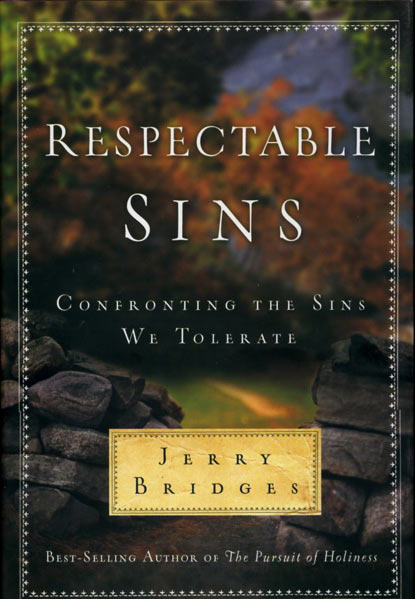Quotes
Selfishness is a difficult sin to expose because it is so easy to see in someone else but so difficult to recognize in ourselves. In addition, there are degrees of selfishness as well as degrees of subtlety in expressing it. One person’s selfishness may be crass and obvious. Such a person usually doesn’t care what others think about him. Most of us, however, do care about what others think so our selfishness will likely be more delicate and refined.—102
[Self-control] is a governance or prudent control of one’s desires, cravings, impulses, emotions, and passions. It is saying no when we should say no. It is moderation in legitimate desires and activities, and absolute restrain in areas that are clearly sinful.—110
Though the Bible does give some examples of righteous anger, such as Jesus’ cleansing of the temple, they are few. The main focus of the Bible’s teaching on anger deals with our sinful anger, our sinful reactions to other people’s actions or words. The fact that we may be reacting to another person’s real sin does not necessarily make our anger righteous.—122
Resentment is anger held on to. Most often it is internalized. It arises in the heart of someone who is ill-treated in some way but who does not feel in a position to do anything about it…. Resentment may be more difficult to deal with than outwardly expressed anger because the person often continues to nurse his wound and dwell on his ill-treatment.—130
Summary
In this section of the reading, Bridges continues through the sins that are so often considered to be ‘acceptable’ by even genuine believers. No matter how saintly you may be, if you are at all sensitive to the conviction of the Spirit, you won’t be able to read these chapters without conviction! While noting that selfishness shows up all over the place in our lives, Bridges focuses on the way that it shows up in our interests, our time use, our spending, and our lack of consideration for others. Though we live in a culture of indulgence, self control is not optional for those who would follow Christ. It is not enough to avoid activities that are illegal or obviously immoral—even innocent practices can be sinful if indulged in without moderation. Impatience, growing to irritability if unchecked, is a constant temptation in our ‘have it your way yesterday’ society—and we don’t have to express it orally to have been sinfully impatient in our hearts. Anger is not rendered righteous simply because we have been genuinely wronged. The weeds of resentment and bitterness that anger brings in its wake are still destructive, no matter how significant the offense that provoked them was. Only as we focus on the greatness of the debt that God has forgiven us can we begin to live a life of heart forgiveness toward others.
Coming Up
In this last section of our reading, Bridges wraps up his list of respectable sins before concluding with a chapter on moving forward in Christlikeness in each of the areas adressed in the book.

